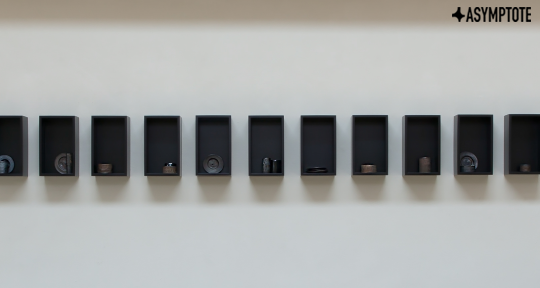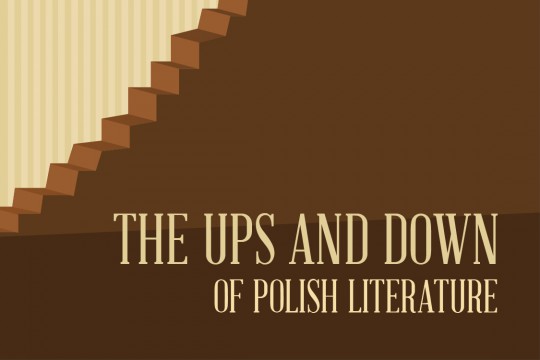Each translator’s relationship with their source text is utterly singular, and occupies all the emotional registers of human relationships: reverence, intrigue, and frustration. In the following essay, translator Marta Dziurosz, who works between the Polish and English, ruminates on the intricate development of this relationship: its precisions, intimacies, and sensitivities.
There’s joy in repetition
—Prince
In January 2020 I was due to speak at the British Library. It was a Holocaust Memorial Day event, and I was there to talk about my co-translation—with Anna Błasiak—of a book entitled Renia’s Diary: A Young Girl’s Life in the Shadow of the Holocaust, the wartime diary of a young Polish Jew, Renia Spiegel. The third speaker at the event was artist and writer Edmund de Waal, whose astonishing book The Hare with the Amber Eyes I read when it first came out. Half preparing for the event and half procrastinating, I watched Make Pots or Die, a documentary about de Waal’s work.
De Waal spoke about his work as evidence of spending time—how he places his pots in the vitrines in which they’re displayed very quickly and it’s almost always wrong or almost right, and then he needs to come back and look at them, look at them for a very long time, because there’s an enormous difference between almost right and right. The process struck me as familiar; as a translator, I think about the weight of a comma. I put it in, I take it out, I put it in, I take it out, I put it back in. I put a semicolon at the end of a sentence instead of a full stop, change it back to a full stop. I switch the second and the fifth words around. I change a noun to its diminutive, reconsider.
Once I had that thought, de Waal’s pots started to look like drafts. Perhaps he’s iterating. To me, every pot within an installation looks like a re-translation of a word, sentence, thought, text. The vitrine, taken together, is a mind subtly improvising on a theme. The difference is that in a de Waal vitrine, the audience can see many iterations, many expressions of a thought, if this is what they are; the reader of a translation only sees the last version, the one the translator (and, possibly, her editor) deemed the best, whatever that means.

the poems of our climate (detail), 2018
© Edmund de Waal. Courtesy the artist and Gagosian. Photo by Mike Bruce.
What would a translation look like if every draft of every sentence, or even of just one sentence, was present at the same time? Unreadable, of course, but for a translator—how informative, how interesting. De Waal: “Repetition isn’t about repeating the same thing. It’s about minute differences between each moment, between each sound, between each object that you’re making.” Having to appreciate every shade of a sentence, calibrate every word choice so that meaning, register, mood, rhythm, emotional effect all work, and putting all those carefully chosen words in an order that suits the sentence, the paragraph, the whole book—all this makes translation seem impossible, but as some point you make the decision. You place pot A next to pot F and slightly behind pot R, and then lean tile N against pot V and somehow, you’ve arrived. READ MORE…


